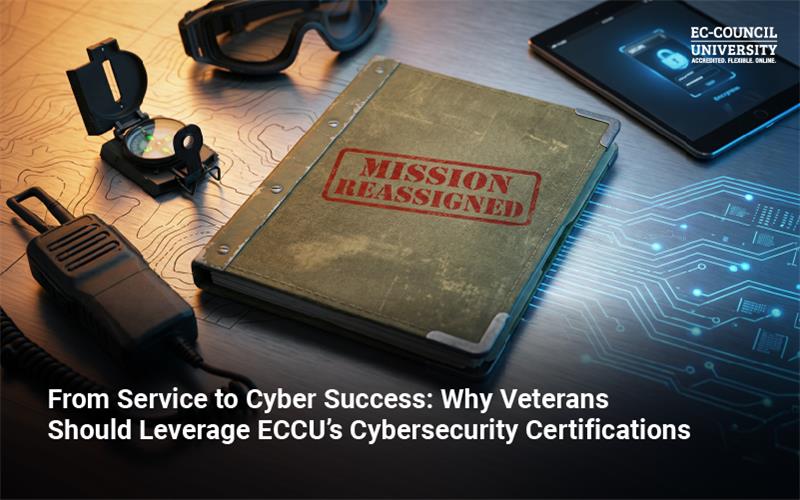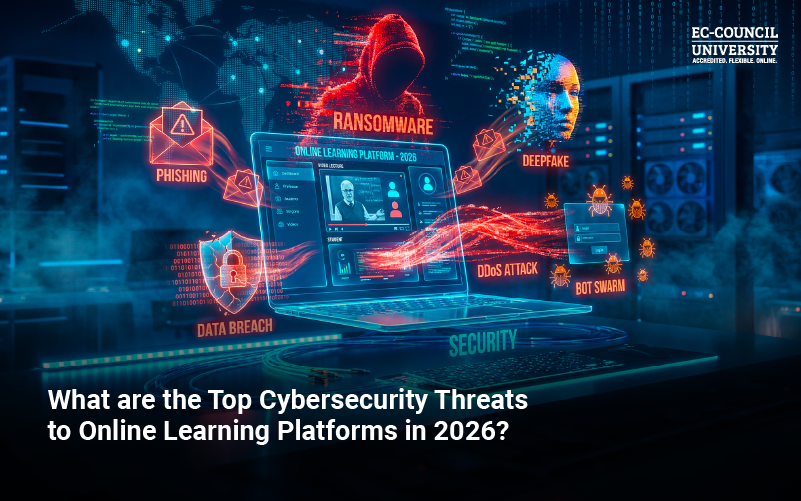Introduction to the Importance of Online Cybersecurity Courses
7 Real-Life Benefits of Online Cybersecurity Courses
1. Understanding Threat Intelligence
Think of threat intelligence like a weather forecast, but rather than inform you about an impending storm, it predicts forthcoming cyberattacks and helps you prepare accordingly. Online cybersecurity courses, like the Managing Risk in Information Systems course, teach you to interpret these “forecasts” by analyzing data from past attacks, cybercriminal behavior, and global trends.
Theoretical Use Case: You manage security for an online store and receive reports of a new scam targeting e-commerce sites. Because you’ve learned about threat intelligence, you quickly update your systems and warn your team, staying one step ahead of the attackers.
2. Incident Response and Crisis Management
When a cyberattack happens, it’s like a fire breaking out, and you need to act fast while staying calm. Online cybersecurity courses, like the Incident Handling and Response course, show you how to react during a cyberattack, who to coordinate with, what steps to take, and how to recover safely. You also learn to communicate clearly during a crisis, which is as important as fixing the problem.
Theoretical Use Case: Your company’s website unexpectedly crashes. Thanks to your training, you know how to check for signs of an attack, notify the right people, and help restore the site quickly, minimizing downtime and loss of revenue.
3. Learning from Real-World Case Studies
Online cybersecurity courses often examine instances of real-life cybercrime. You’ll study what went wrong, how it was discovered, and what could have been done differently. These case studies are like cautionary tales that help you and your organization avoid repeating the same mistakes.
Theoretical Use Case: You study a case where a company lost millions because it didn’t issue a timely software update across its IT systems. Later, when your company neglects a software update, you speak up and explain the risks by citing a real-world example, potentially saving your organization from a similar fate.
4. Exposure to Industry Tools
5. Hands-on Practice in Virtual Labs
Imagine you’re learning to drive. Would you rather learn by reading an instruction manual or getting behind the wheel in a safe, controlled environment and accompanied by an instructor? That’s what cybersecurity labs do. These virtual labs create an environment where real cyberattacks are simulated, such as a malicious hacker trying to access a company’s IT network. You can play the role of both attacker and defender, learning to hone in on vulnerabilities and fix them before real damage is done.
Theoretical Use Case: You work at a hospital, and one day, a ransomware virus locks patient records. Thanks to your training, you recognize the signs early, isolate the infected system, and restore data from backups, preventing the virus from spreading across the hospital’s IT infrastructure.
6. Red Team vs. Blue Team Exercises
This is like a game of digital heroes and villains. The Red Team plays the role of cyber criminals trying to break in, while the Blue Team protects the system from their attempts. These exercises are a key part of an online cybersecurity course. They’re fun, competitive, incredibly educational, and teach you how attackers think and how defenders can outwit them.
Theoretical Use Case: In a training exercise, you’re on the Blue Team. The Red Team tries to sneak into your network using a phishing email. You spot the deception, repel the attack, and learn how to optimize your email filters.
7. Industry-Approved Certifications
Many online cybersecurity courses provide certifications that employers trust. These certifications prove you know your stuff and are qualified to tackle real-world cybersecurity challenges.
Theoretical Use Case: You’ve decided to pursue a career in cybersecurity and begin applying for jobs. Employers see that you have a Certified Ethical Hacker (C|EH) or Certified Network Defender (C|ND) certification, which you earned through an online cybersecurity course. This gives you a significant advantage over other candidates and demonstrates your seriousness about the job responsibilities.
EC-Council University: The Home of World-Class Online Cybersecurity Courses
So, are you ready to take up an online cybersecurity course? EC-Council University offers several globally-acclaimed courses that cover topics ranging from ethical hacking, penetration testing, and network security to digital forensics, cloud security, and threat intelligence. These short-term (3-month) 100% online courses give you maximum flexibility with asynchronous learning while immersing you in a true university classroom-like experience. You can find out about our courses and their respective benefits by clicking here.
If you’re seeking a more comprehensive learning agenda, our online degree programs (Bachelor’s and Master’s degrees) combine the teachings from our cybersecurity courses along with executive management and leadership studies, presented under one in-depth, unified curriculum. Apart from a degree, you’ll also be able to earn multiple cybersecurity certifications in the process. These programs are designed to prepare you for top-level cybersecurity positions.
To know more, feel free to connect with us at [email protected]







